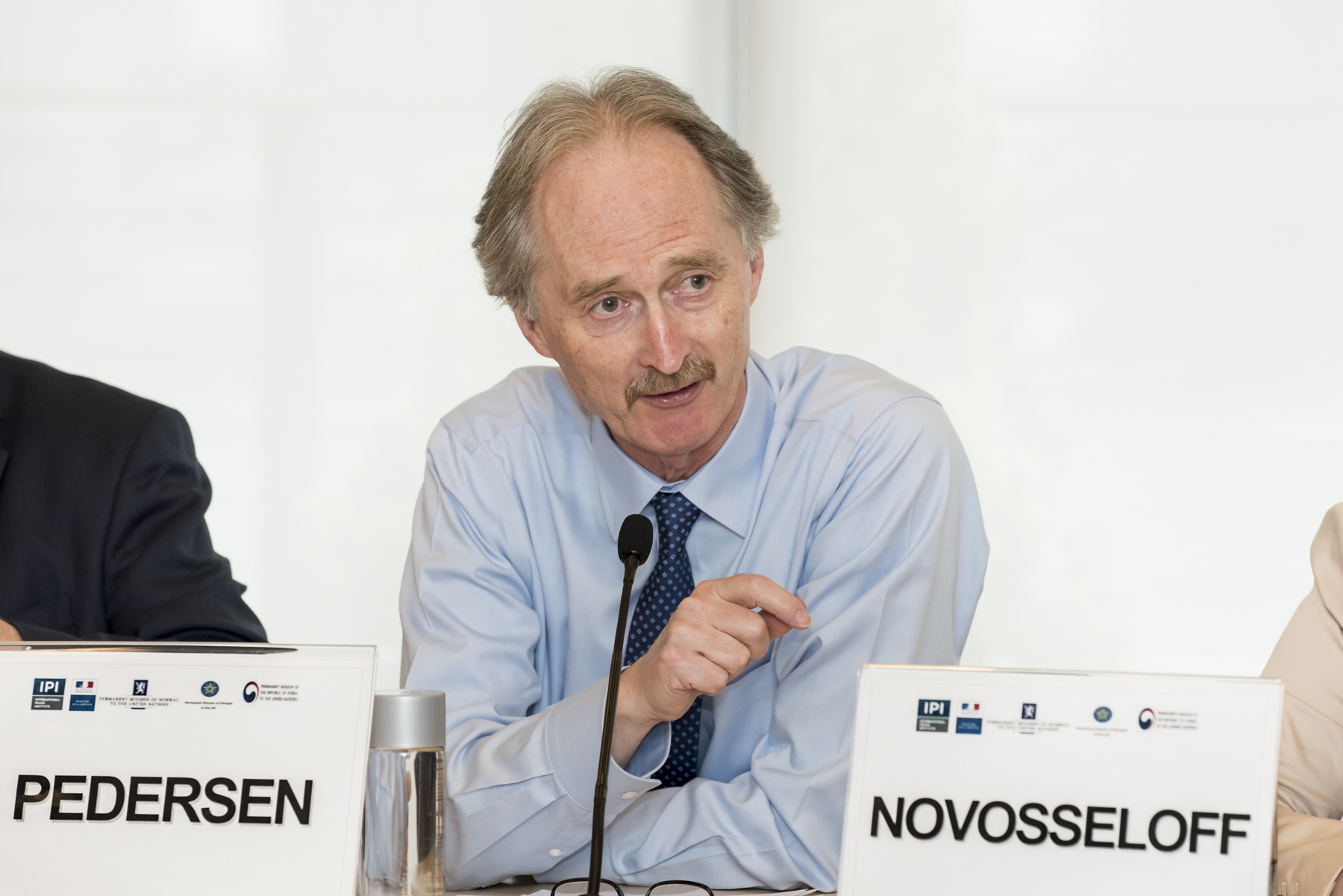4th UN envoy to Syria Geir Pedersen to help for peace in the region

- Country:
- Syrian Arab Republic
The new special UN envoy to Syria began his first trip to Damascus on Tuesday, facing the daunting task of rekindling moribund peace talks and succeeding where his three predecessors failed. Geir Pedersen's visit comes at a time of heightened tension between the top foreign brokers of a conflict that has already left more than 350,000 people dead and displaced half of the country's population. Turkey and the United States are calling for the creation of a so-called "security zone" in northeastern Syria, a move that the Kurdish militia controlling the area sees as nothing short of a military occupation.
Pedersen, who replaces Staffan de Mistura, is the fourth negotiator to have been appointed UN special envoy to Syria since the civil war broke out in 2011. The seasoned Norwegian diplomat, 63, held talks with senior Syrian officials, including Foreign Minister Walid Muallem. Muallem expressed Syria's "readiness to cooperate with him... in his mission to facilitate Syrian-Syrian dialogue with the objective of reaching a political solution to the Syrian crisis," a foreign ministry statement said. Pedersen simply said upon arrival that he was "looking forward to productive meetings here". Officials in the government of President Bashar al-Assad had set the tone for the new envoy's tenure shortly after news of his appointment in October last year.
"Syria will cooperate with the new UN envoy Geir Pedersen provided he avoids the methods of his predecessor," Deputy Foreign Minister Faisal al-Meqdad had said, quoted by Al-Watan newspaper. Assad opponents have said the change in UN envoy would have little impact on the fate of the country as international will and consensus were lacking. Pedersen has not yet spoken publicly about his mission and it remains unclear what his approach will be. De Mistura, who announced in October he was resigning for "purely personal reasons", ended his four-year tenure with an abortive push for the formation of a committee tasked with drawing up a post-war constitution for Syria.
In December, he acknowledged the committee would not be formed by year's end as was hoped. "I deeply regret what has not been achieved, and I am sorry more was not possible," said the Swedish-Italian diplomat. A track of peace talks in Geneva between the regime and opposition delegations is clinically dead and observers argue Assad will see little need to revive it. Three years into the conflict that erupted when the government repressed anti-regime demonstrations, Assad was clinging to barely a third of Syrian territory and his days at the helm looked numbered.
The Syrian president, who has been in power for more than 18 years, has now reclaimed much of the territory he lost at the beginning of the war, largely thanks to the military backing of veto-wielding UN Security Council permanent member Russia. Non-jihadist opposition groups across Syria have little or no clout on the ground and negligible bargaining power in negotiations with Damascus. One of their main sponsors, Turkey, is pursuing its own agenda in Syria, notably a strategy aimed at undermining the Kurdish militia that controls a large swathe of the country's northeast.
The People's Protection Units (YPG) expanded its influence across the area when it became the main ground partner of the US-led coalition battling Islamic State jihadists in Syria. But US President Donald Trump last month announced a complete troop pullout, which will leave the Kurds exposed to threats by Turkey, which considers the YPG a terrorist organisation. Washington is insisting it wants to ensure Syria's Kurds will be safe but is also advocating the creation of a buffer zone in northern Syria to protect Turkey. What exactly such a "security zone" advocated by both the US and Turkey would entail remains unclear.
(With inputs from agencies.)
ALSO READ
Peru's Congress backs new cabinet after government announces new funding for mining
Muslim community members in US decline White House Iftar dinner invite: media reports
Taiwan earthquake injuries top 1,000, missing hotel workers found
Palestinians want April vote on UN membership despite US saying peace with Israel must come first
'Staunch' friend of Taiwan's to become top US diplomat in Taipei, sources say










